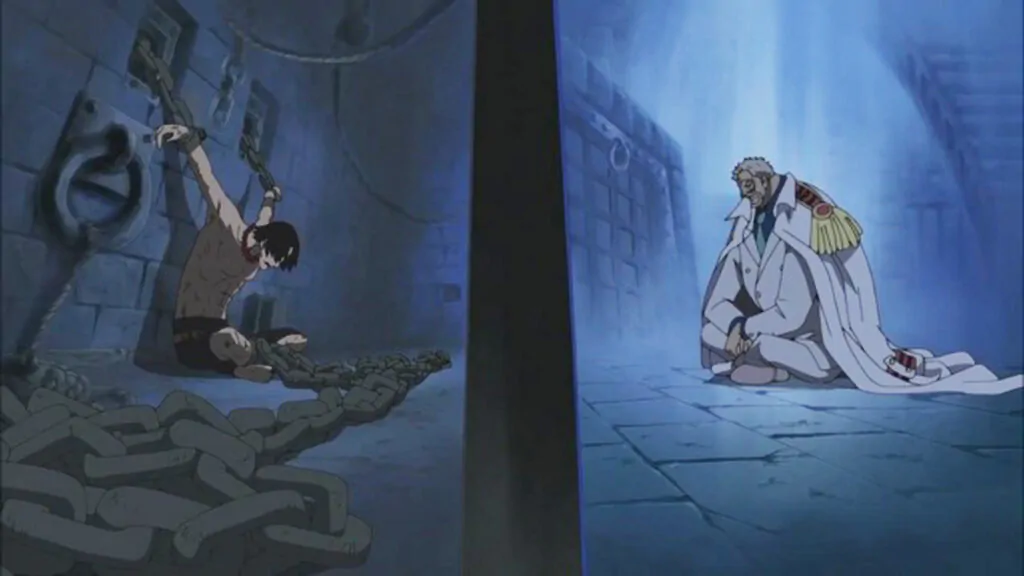Garp’s Decision at Marineford: Impact of God Valley in One Piece
The Tragic Decision at Marineford: Did Garp Let Ace Die to Avoid the Consequences of God Valley?
The death of Portgas D. Ace is one of the most heartbreaking moments in One Piece. Fans vividly remember the scene where Garp, trembling, sat helplessly as his grandson was executed — a mix of rage, despair, and paralyzing helplessness. For years, this moment was seen as a symbol of a Marine caught between duty and family. However, with recent revelations surrounding God Valley and the truth about Rocks D. Xebec, the story has taken on a much darker meaning.
According to Eiichiro Oda’s new interpretation, Garp’s inaction wasn’t driven by fear or obedience. Instead, it stemmed from guilt — the weight of what he witnessed decades earlier when absolute power crossed the line of humanity.
God Valley’s Shadow: When Justice Turns into a Monster
At God Valley, Garp witnessed the true horror of justice. He saw Imu transform Rocks D. Xebec into a demon through the power of Domi Reversi — a strong, proud, and untamable man reduced to a weapon against his loved ones.
For Garp, this marked the end of innocence. He realized that power, when bent by fear or blind obedience, could destroy everything it aimed to protect. From that day forward, the word “save” took on a new meaning for him.
Garp’s Dilemma at Marineford: Duty vs. Freedom
When Ace is on the execution block, as noted on Fandomwire, Garp is not merely a conflicted grandfather. He is a man reliving the nightmare of God Valley. Before him, he doesn’t just see his grandson — he sees the reflection of Xebec, a rebellious soul bent by the power of the system.
To save Ace would have meant interfering with his freedom, denying him the chance to die as a free man, as he had chosen. In that moment, Garp understands that true salvation isn’t breaking chains, but allowing those you love to choose their own fate, even if it means losing them forever.
Garp’s Silent Rebellion: The Ultimate Act of Resistance
Garp’s decision — to remain still as Ace falls — was not cowardice. It was resistance. It was his way of refusing to repeat the mistakes of God Valley, of not allowing the world to use his power once again to dictate who lives and who dies. Through this parallel, Oda transforms Marineford from a family tragedy into a philosophical one: Garp chooses not to be God, not to “correct” the course of fate, but to let it run its course.
As Oda himself writes, “Garp’s true strength isn’t in his fists, but in his self-control.” He had seen a world where men are manipulated like pawns, and he swore never to be complicit in that game again. He didn’t save Ace because he wanted his freedom to have meaning. And, in a painfully human way, that act destroyed him more than any battle ever could.
Perhaps, at Marineford, Garp wasn’t a hero. But for the first time since God Valley, he was a free man.
Ace’s Japanese Voice Actor Reflects on the Most Heartbreaking Moment
The voice actor for Ace in the Japanese version of One Piece recalls how the scene at Marineford was one of the hardest moments during the dubbing process, underscoring the emotional weight carried by Garp’s decision.
